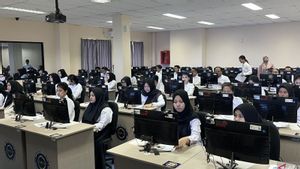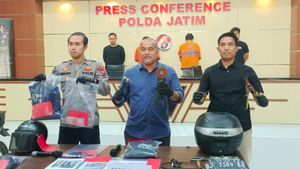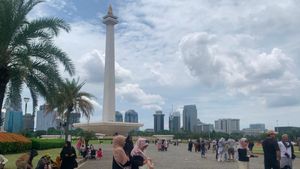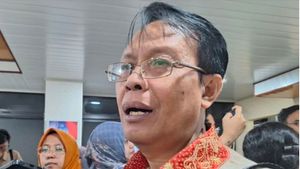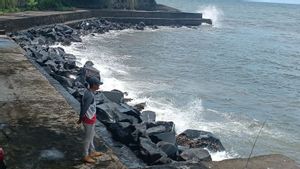JAKARTA - The Meteorology, Climatology and Geophysics Agency (BMKG) said that the rain hit Central Sulawesi was uneven because this province entered a "non-zero" area or region had no clear boundaries between the rainy and dry seasons. "In other areas, it is already in the rainy season. But Central Sulawesi is still often hit by hot weather. This is where the uniqueness of the 'non-zero' area," said Head of BMKG Class II Meteorological Station Mutiara Sis Al-Jufri Palu Nur Alim in Palu, Monday 9 January.. According to BMKG's weather forecast, the rainy season in this area will last until next February with moderate to heavy intensity. Even so, the rain is inconsistently falling and the hot weather is still ongoing.
Therefore, the local government is asked to continue to pay attention to weather conditions, because heavy rains do not rule out the possibility of causing an impact. "Heavy rain is something common, but it needs to be watched out for because at any time it can have an impact such as floods and landslides, especially areas that have a history of natural disasters," said Alim. According to the BMKG, this area has a fairly high local rainfall level because it is influenced by topography. "The weather is different even though it occurs in the sub-district or in one district. Palu City, for example, the plan is for rainfall to be influenced by valley topography and rainfall is lower than the surrounding areas, namely Sigi, Donggala, and Parigi Moutong Regencies," he said.
He added that the BMKG also issued weather early warnings for five areas in Central Sulawesi that are estimated to have the potential to cause an impact, including Donggala, Tolitoli, North Morowali, Poso, and Banggai Regencies. Therefore, these areas are included in an alert status that is valid for the next two days.
He also asked residents to always take advantage of information updated by BMKG periodically, both as knowledge and for guidelines for traveling long distances. "At least the information that we spread through multimedia to the public can be used as a reference while increasing mitigation," said Alim.
The English, Chinese, Japanese, Arabic, and French versions are automatically generated by the AI. So there may still be inaccuracies in translating, please always see Indonesian as our main language. (system supported by DigitalSiber.id)




